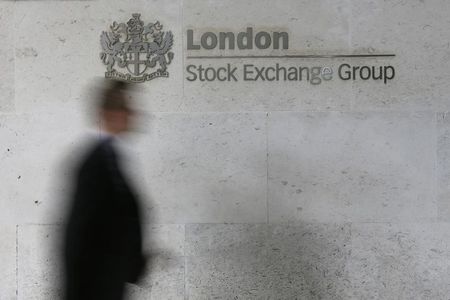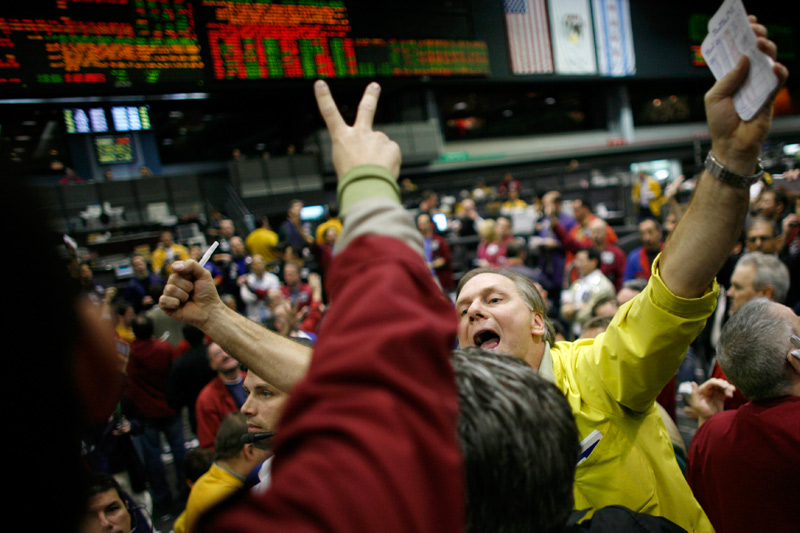By John Geddie LONDON (Reuters) - European shares and the euro gave up early gains as weakening German business morale doused investor enthusiasm over slightly better-than-expected bank stress test results.
Most government bond yields stayed lower on the day, however, after the business climate index in the bloc's largest economy fell to its lowest level in almost two years, raising the prospect of further ECB monetary stimulus.
Wall Street looked set to open lower before data on U.S services sector growth and home sales.
Around one in five of the Europe's top lenders failed the tests at the end of last year and many have since repaired their finances, results released on Sunday showed.
"The success of the exercise has been that it has forced banks to raise capital ahead of it, and we can now be more confident of their resilience to future crises," said Aberdeen Asset Management's co-head of credit research Neil Williamson.
But while the stress tests beat market expectations, the long-term attractiveness of the sector has been damaged by revelations of extra non-performing loans and hidden losses that will dent future profits.
The bloc's banking index initially rose 1 pct before reversing gains as shares in Italy's Monte dei Paschi -- one of the big losers from the tests -- plunged 20 percent. (MI:BMPS)
The index of top European shares (FTEU3) also dipped 0.3 pct, erasing early gains. (EU)
The euro initially proved fairly resilient to the poor data but slowly eased back to be flat on the day at just below $1.27 [FRX/].
Yields on Italian 10-year government bonds -- the largest market in the euro zone's southern periphery -- were 1 basis point lower even though nine Italian banks fell short in the tests, with Monte dei Paschi and Banca Carige still needing to raise funds.
Euro zone "banks face a significant challenge as the sector remains chronically unprofitable and must address their 879 billion euro ($1.1 trillion) exposure to non-performing loans as this will tie up significant amounts of capital," accountancy firm KPMG noted.
Spanish yields -- another peripheral bellwether -- were the best performers, some 5 bps lower on the day, while German equivalents were 3 bps lower. [GVD/EUR]
"There's some relief this morning that there were no Spanish banks in the test that failed. As for Italy -- that was already priced in," said Emile Cardon, market economist at Rabobank.
Attention now turns to the ECB's announcement of its covered bond purchases, the first in a new bond-buying program intended to help unclog credit channels and stimulate lending to the real economy.
If the figures due at 10.30 a.m. EDT disappoint, it will be seen to support calls for a broadening of the program to include corporate or even sovereign bonds.
In emerging markets, Brazil's opened with big losses after incumbent President Dilma Rousseff won the election, beating her pro-market opponent by a narrow percent majority.
Brazilian stocks plunged 5 percent to seven-month lows (BVSP), with state-run oil company Petrobras down 13 percent, and banks' shares falling 4-6 percent. Brazilian 5-year credit default swaps rose 10 bps and bond yields rose too.
Russian stocks were up around 1 percent (MCX) after Standard & Poor's kept the sovereign credit rating steady at one notch above junk, despite fears of a downgrade.
The rouble fell to record lows against the dollar after a 35 kopeck widening in the ruble's trading band and central bank interventions on Friday. <RUB=>
Among commodities, Brent crude extended losses, falling over 1 percent to $85.56 a barrel , after Goldman Sachs cut its price forecasts. Crude continued on a months-long rout as signs of rising global supply threatened deeper price losses. [O/R]
Iraq increased its oil supply in October and Libya's output remains high, despite instability in both countries.
Gold <XAU/USD> was a touch higher at $1,231.06 an ounce.

(This story has been refiled to change weigh to weighs in the headline)
(Additional reporting by Sujata Rao and Marius Zaharia; Editing by Catherine Evans/Ruth Pitchford)
